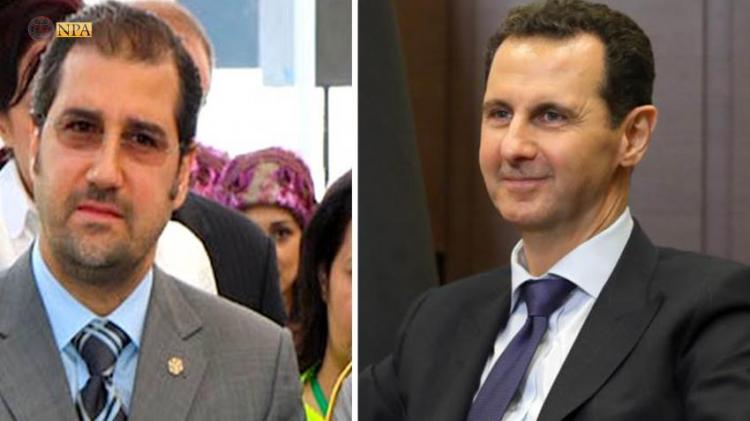Syrian economy’s collapse linked with news of Makhlouf’s arrest – Analyst
Washington – North-Press Agency
Hadeel Oweis
The economic analyst Albin Szakola links the reports of arresting or excluding Rami Makhlouf (Syrian businessman, the maternal cousin of President Bashar al-Assad, he is a part of al-Assad’s inner circle and considered as Syria’s wealthiest man), to the recent collapse of the Syrian economy, along with the economic sanctions since the war has erupted in Syria.
Szakula said: “What is happening now to the Syrian economy and what we expect in the future is linked to two emergency economic events that have hit the special model on which Bashar al-Assad depends”.
He explained: “The first one is to fill the funds of the economists who are working in the private sector with the resources of the Syrian state to smuggle the money and maneuver the sanctions, including Samer al-Foz who was recently subjected to the U.S. sanctions”.
“The second event is the dispute that broke out with Rami Makhlouf, who had possessed until the beginning of the Syrian crisis about 65% of the Syrian economy”, Szakula added.
Szakula said: “The equation was that the economic power of Rami Makhlouf means the economic safety valve of Bashar al-Assad; and we should not refute the fact that most of Makhlouf’s money is out of Syria and away from al-Assad’s control, while the most guarantor for the return of this money was the confidence, which was shaken by Russia’s pressure on al-Assad to pay the bill of the war bill for the Russians”.
Sazakula believes that the economic situation in Lebanon is inseparable from Syria, where Lebanon is also going through its most difficult stages due to the U.S. campaign of maximum pressure on the Iranian economy.
Recently in Lebanon, the demand for the dollar has significantly increased, and there are some black market traders trying to absorb the dollar from Syria, which is deteriorating the Syrian pound.
While Sazakula emphasizes that the U.S. sanctions are largely hitting the economies of countries, but he does not see how realistic the words of the U.S. diplomat Joel Rubin that the economic pressure will continue on al-Assad to force him to accept the political transition.
He pointed out that the Syrian economy is suffering from countless crises, including sanctions on the banking sector, where there is no certainty for the Syrian citizen who deposits his money in the Syrian banks to be able to withdraw it; since the Syrian financial sector has been excluded from the global financial system, and it is non-commitment to any banking laws.
The economic analyst recalls the recent Syrian fuel crisis, which was linked to the imposed sanctions against Iran, predicting that the next winter would be the toughest, as Syria’s potential today has completely run out of fuel that Iran had exported during President Obama Administration, when Iran was not burdened with these sanctions.
Szakula reviewed the escalation of the U.S. State Department towards the Iranian tankers and their arrival to Syria, in addition to the fact that the Syrian government does not control the Syrian oil resources in the north of the country, while the U.S. quest is to deprive the Syrian government of getting benefits of these oil resources forever.
He concluded: “While Iran had entered Syria seeking for political and military influence in a strategic country, the Russian intervention came to absorb all the benefits of the Syrian economy, and thus, Russia is a tremendous damaging factor for the Syrian economy that will lead this economy to inevitable death”.

